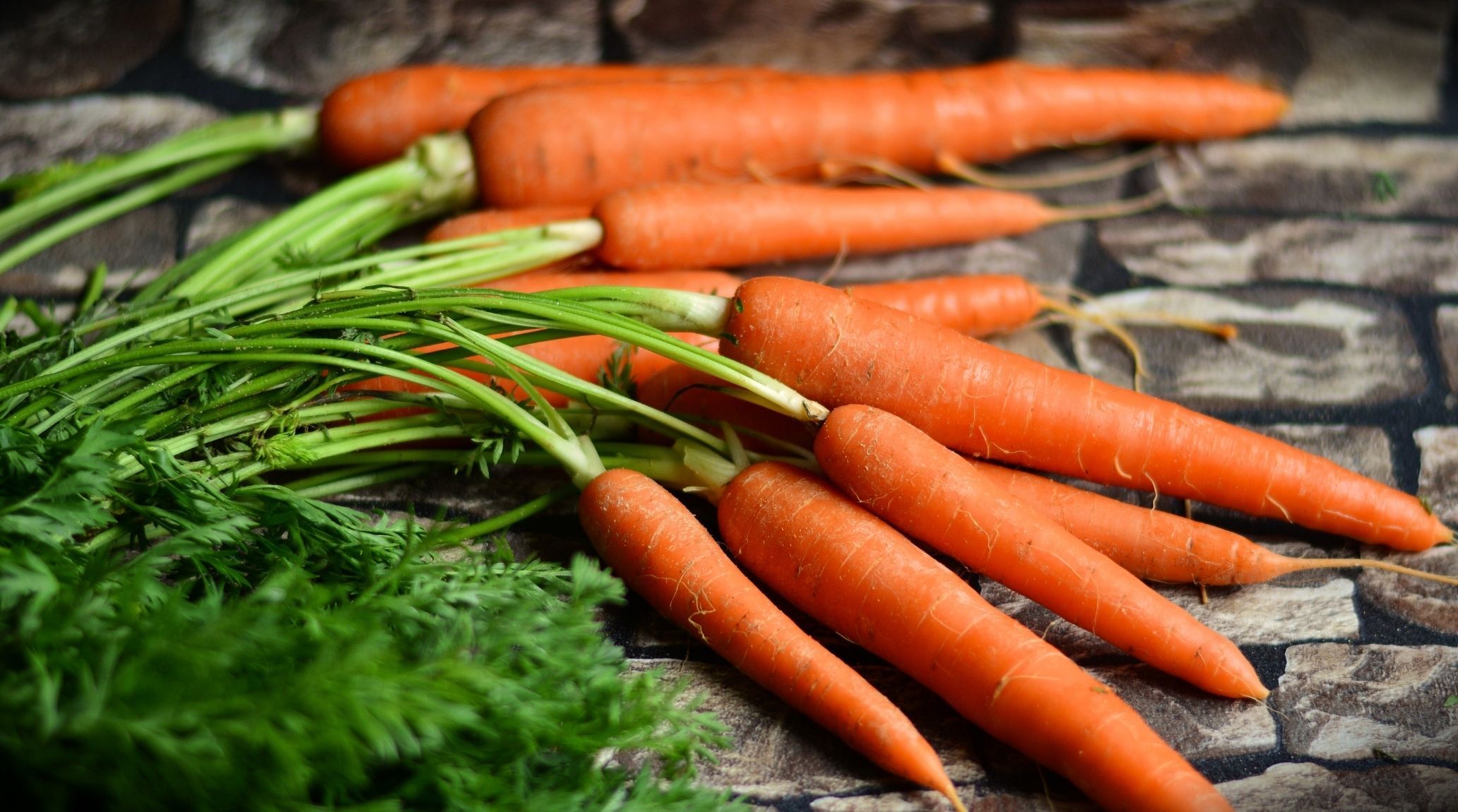
“
Often seen as a simple vegetable, carrots have a wealth of interesting information beyond their crunchy texture and vibrant colour. In this blog, we’ll explore 20 fascinating facts about carrots that highlight their history, health benefits, and unique traits. Whether you’re a carrot enthusiast or just curious about this common vegetable, you’ll be surprised by the intriguing details we’ve uncovered. Get ready to learn all about why carrots are so much more than just a side dish!1
1
”
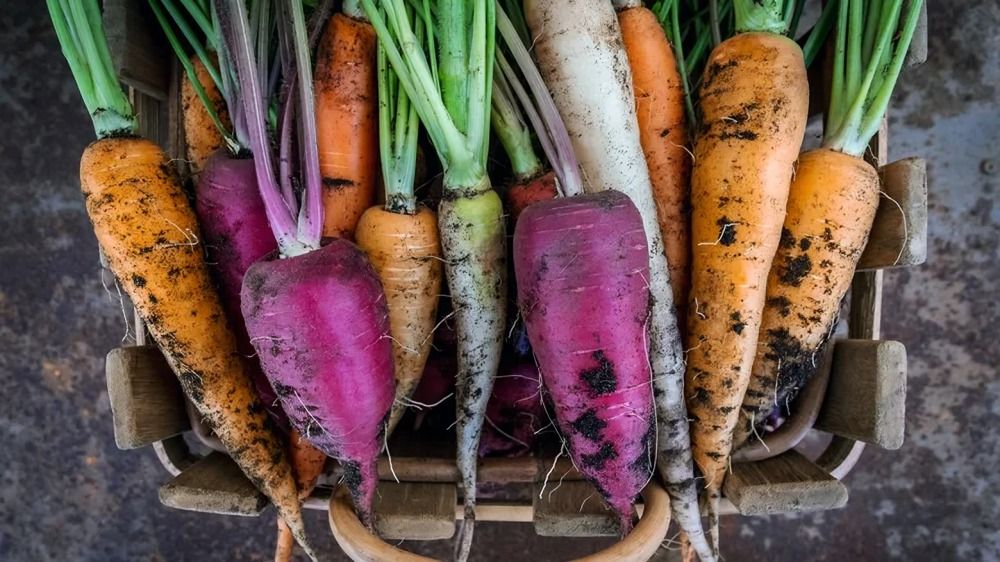
While known as orange, carrots originally came in various colours like purple, white, and even black. These vibrant colours reflected different nutrients. The orange carrot, developed in the 17th century, became popular and is now the most common.

Eating too many carrots can lead to a condition called carotenemia, where excessive beta-carotene causes the skin to turn yellowish. This harmless change occurs because the body accumulates more carotenoids than it can process.
Carrot seeds are incredibly small, with approximately 2,000 seeds fitting into a single teaspoon. This tiny size makes them easy to sow and handle during planting, despite their vital role in growing this popular vegetable.1
Carrots have been cultivated for over 3,000 years, initially grown for seeds, not roots. Ancient civilizations valued them for medicinal purposes and seeds. The modern root vegetable we eat today was developed later, enhancing both flavour and nutrition.2

A baby carrot isn't a true baby carrot. It’s actually a regular large carrot that’s cut and shaped into small, rounded pieces using machinery. These pieces are then tumbled and polished to achieve the familiar baby carrot appearance.
Carrots are composed of 88% water, making them a hydrating and refreshing vegetable. This high water content helps keep them crisp and contributes to their low-calorie count, making carrots a great option for healthy snacking.3
Carrots were initially cultivated for their medicinal properties and used to treat various ailments. Their early use focused more on their health benefits rather than as a food source, showcasing their historical importance in traditional medicine.4
Carrots can improve hair health due to their vitamin A content. Vitamin A promotes healthy hair growth by supporting the scalp and preventing dryness. Including carrots in your diet can contribute to overall hair health and shine.5
The Guinness World Record for peeling and chopping the most carrots in one minute is 591 g (20.85 oz), set by Rosalia Addis of Italy on April 7, 2009, at Pinewood Studios, UK, competing against Rik de Raynor.6
Carrot seed oil is used in skincare for its antioxidant and anti-inflammatory properties. It helps to reduce signs of aging and promote healthy skin. The oil also nourishes and rejuvenates, making it a popular choice for natural beauty products.7
Carrot seed oil is also used in aromatherapy for relaxation and stress reduction. Its soothing properties help calm the mind and alleviate stress. Carrot seed oil's gentle aroma can enhance well-being and create a relaxing atmosphere.8
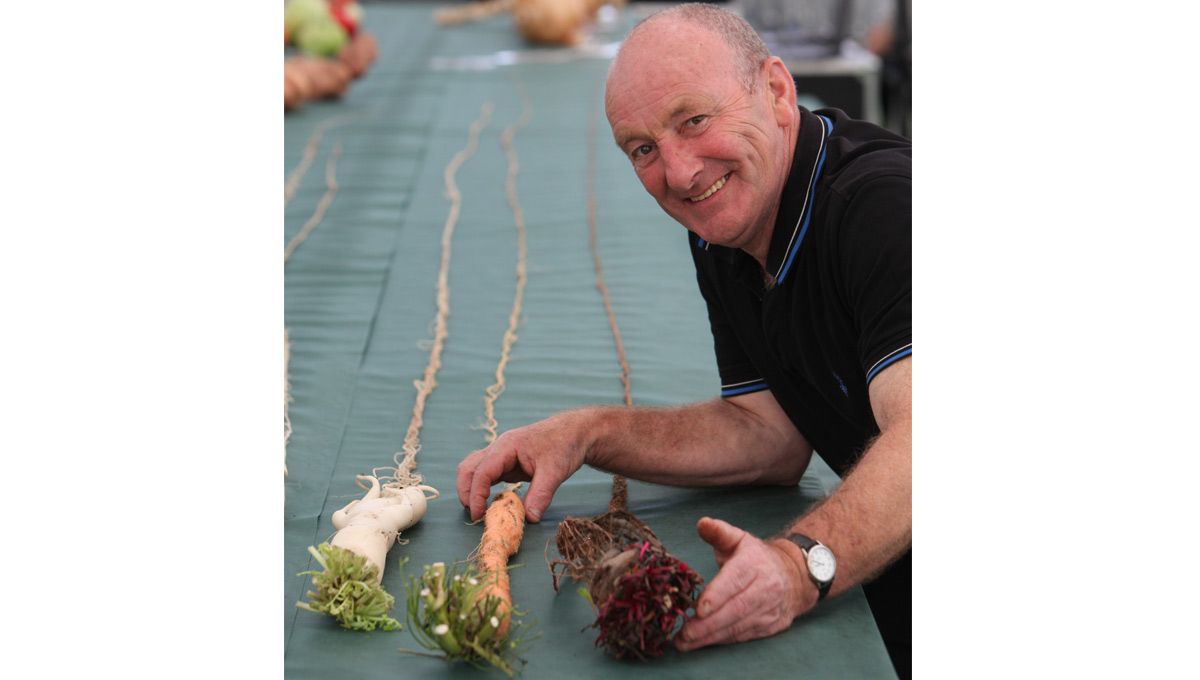
The longest carrot, measuring 6.245 meters (20 feet 5.86 inches), was grown by Joe Atherton of the UK and verified at the UK National Giant Vegetables Championship on September 23, 2016.
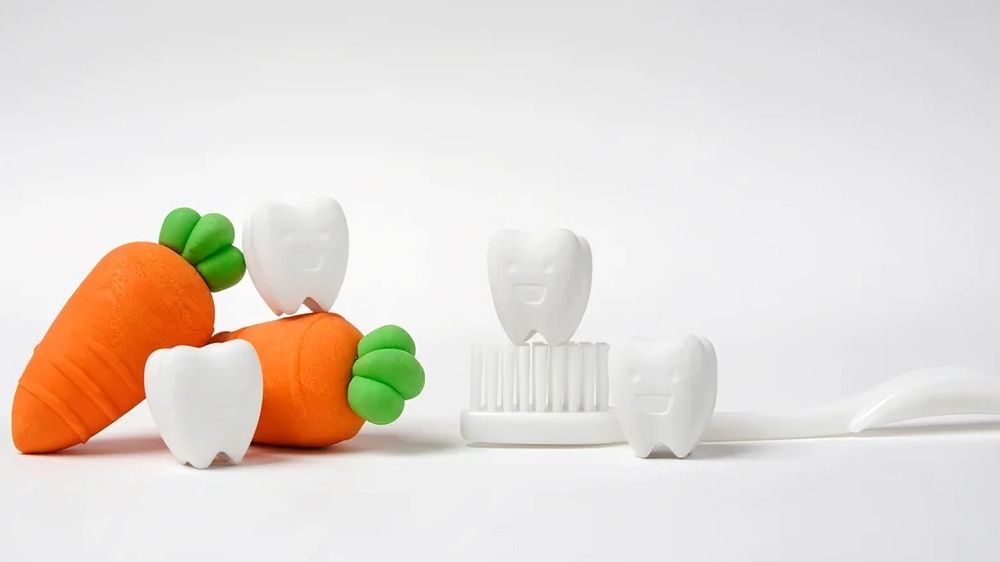
Carrots act like natural toothbrushes. Chewing them helps clean teeth by removing food particles and stimulating gums. Their crunchiness promotes saliva production, which helps neutralize acids and reduce plaque buildup.
Carrot leaves, seeds, and flowers are also edible. The leaves can be used in salads or as a herb, seeds can be added to dishes for flavour, and flowers can be used as a garnish, making the whole plant versatile.9

The heaviest carrot, weighing 10.17 kg (22.44 lb), was grown by Christopher Qualley of Otsego, Minnesota, USA. This record-breaking carrot was verified on September 9, 2017, highlighting an impressive achievement in carrot cultivation.
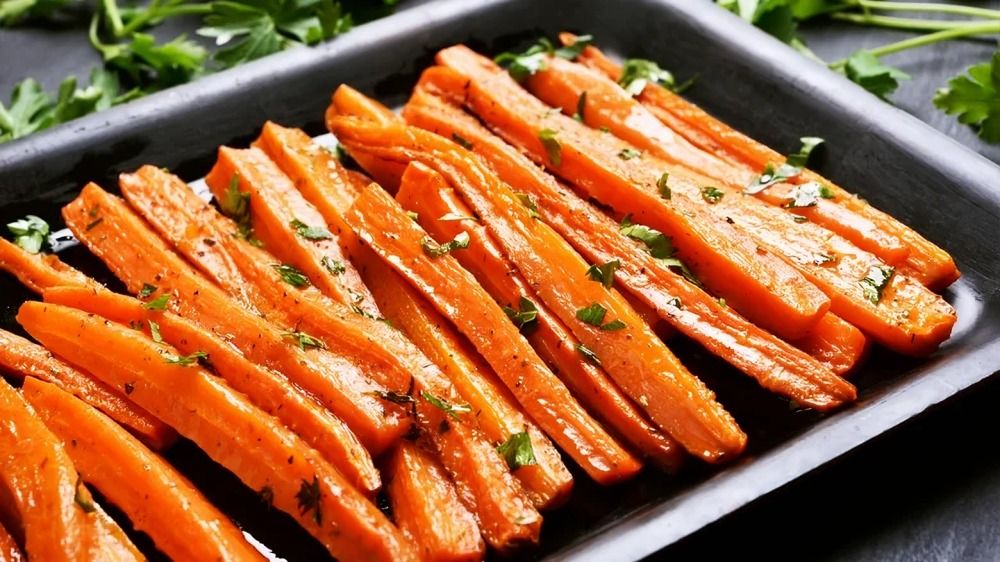
Cooked carrots can be more nutritious than raw ones. Cooking breaks down cell walls, making certain nutrients, like beta-carotene, more accessible. This process enhances their antioxidant.
Some studies suggest carrots' antioxidants may help protect against certain cancers. The antioxidants in carrots, including beta-carotene, may play a role in reducing cancer risk. Eating carrots regularly can contribute to a protective diet.10
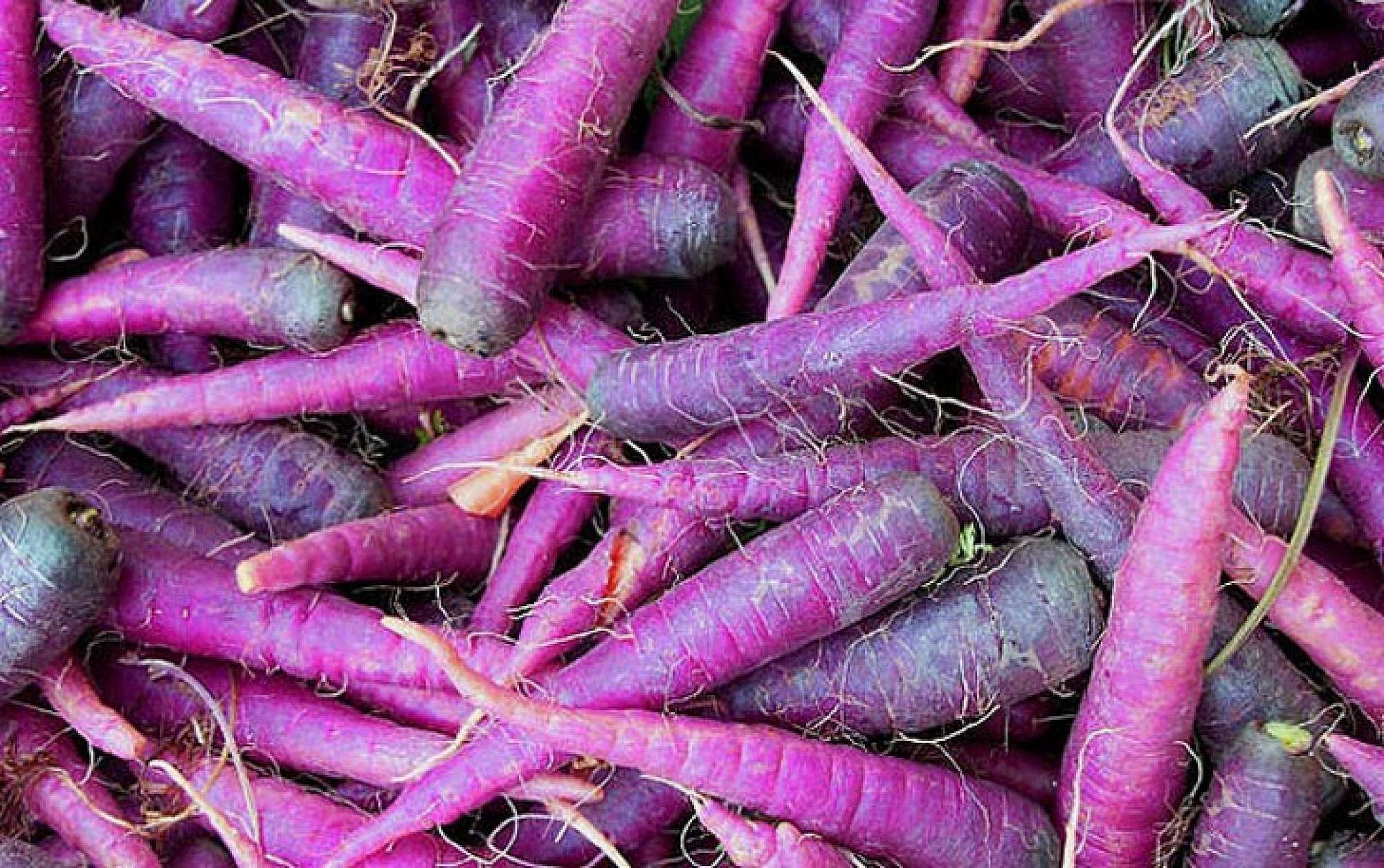
Purple carrots have anthocyanins, which are antioxidants that help protect the body. These pigments not only give the carrots their distinctive colour but also play a role in neutralizing harmful free radicals and supporting overall health.
Carrots can be left in the ground through winter and harvested as needed. They often improve in flavor after frost, which makes them sweeter. However, in very cold climates, it's important to cover them to prevent freezing.11
Carrots are famously associated with rabbits, as they are a staple in their diet. However, they should be given in moderation due to their high sugar content, with leafy greens being a better choice for daily nutrition.12


